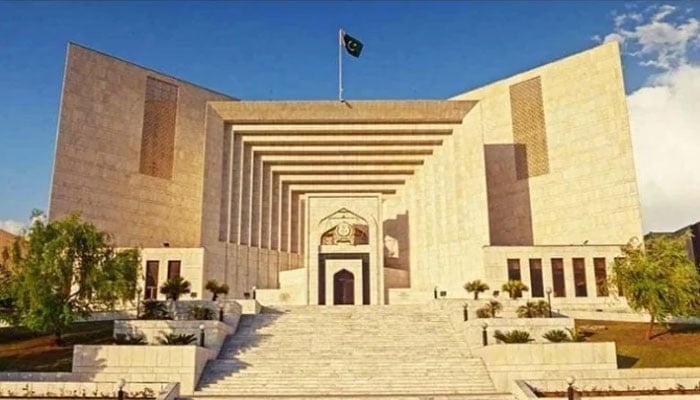Judiciary under attack? Supreme Court hears arguments against act curtailing Chief Justice's powers
SC Bench Hears Pleas Against Act Curtailing CJ's Powers
On May 8th, 2023, the Supreme Court of Pakistan heard pleas against an act that seeks to curtail the powers of the Chief Justice of Pakistan. The act, which was passed by the parliament, has been challenged by various individuals and groups who claim that it is unconstitutional and violates the separation of powers between the judiciary and the legislature.
During the hearing, the Supreme Court bench heard arguments from both sides of the issue. The petitioners argued that the act is a direct attack on the independence of the judiciary and is therefore a violation of the Constitution. They further argued that the act is a clear attempt by the government to weaken the judiciary and undermine its ability to hold the government accountable.
On the other hand, the government's lawyers argued that the act is necessary to streamline the judicial process and ensure that the Chief Justice does not have unchecked powers. They argued that the act is not unconstitutional and that it does not violate the separation of powers between the judiciary and the legislature.
The Supreme Court bench listened to the arguments presented by both sides and asked several questions to clarify certain points. The bench also requested additional information from both sides and asked them to provide more evidence to support their claims.
The issue of the separation of powers between the judiciary and the legislature is a complex and contentious one. While it is important for the judiciary to remain independent and free from interference by the government, it is also important for the government to have some level of control over the judicial process to ensure that justice is served fairly and efficiently.
At the heart of this issue is the question of whether the act in question is a legitimate exercise of the government's power or whether it is an unconstitutional attempt to undermine the independence of the judiciary. This is a question that the Supreme Court will need to consider carefully before reaching a decision.
In conclusion, the Supreme Court's hearing of the pleas against the act curtailing the Chief Justice's powers is an important moment in Pakistan's constitutional history. The issue of the separation of powers is a fundamental one, and it is essential that the Supreme Court carefully considers all arguments before reaching a decision. We can only hope that the court's decision will be guided by the principles of justice, fairness, and the rule of law.
The act in question is the Judicial Reform and Institutional Strengthening Act, which was passed by the parliament in 2022. The act seeks to limit the powers of the Chief Justice of Pakistan, including his authority to appoint judges and determine the composition of benches.
The act has been highly controversial since its passage, with many lawyers, judges, and civil society organizations arguing that it is a violation of the Constitution and undermines the independence of the judiciary. They claim that the act is part of a broader attempt by the government to weaken the judiciary and reduce its ability to hold the government accountable.
Supporters of the act, on the other hand, argue that it is necessary to improve the efficiency and effectiveness of the judiciary. They claim that the Chief Justice has too much power and that the act will help to ensure that the judicial process is fair and transparent.
The Supreme Court's hearing of the pleas against the act is significant because it will determine the constitutionality of the act and the extent of the Chief Justice's powers. If the court rules in favor of the petitioners, the act may be struck down, and the Chief Justice's powers may be restored. If the court upholds the act, it may have significant implications for the balance of power between the judiciary and the legislature.
The independence of the judiciary is a cornerstone of democracy and the rule of law. It is essential that the judiciary remains free from political interference and has the power to hold the government accountable. The Supreme Court's decision on this issue will have far-reaching implications for the future of Pakistan's democracy and the protection of fundamental rights and freedoms.

Comments
Post a Comment